We - as a nation - have not settled on a single definition of terrorism and/or terrorist groups, let alone the rest of the world. But one item is nearly universal, and that is that an attack on a state by a non-state actor is terrorism, and an attack on a state by a state actor is an act of war. In some instances, the emotional dynamic of civilian targets or casualties is not even a factor. (Consider, if you will, Dresden.)
I must not have stated the case in a fluid and convincing enough manner, as it netted the sound of crickets in response, but I attempted to make this case a few weeks ago with IRGC Designation and the Law of Unintended Consequences
Designating the IRGC a terrorist organization will likely have precisely the desired economic effect. But can this purely psychological impact (beyond our borders, definitions and laws) not be achieved under the existing ďstate sponsor of terrorismĒ umbrella? If not, why not?
Ask precisely how Iran sponsors international terrorism, and it must be concluded that it is almost exclusively through their IRGC and Quds Force. So why separate the IRGC from its commanding regime?
Do we really need to specifically designate Iranís most elite military branch as a terrorist entity to justify such defense against those who are killing our troops in Iraq, both directly and via sponsorship and arms support?
The short answer is ďNo.Ē The long answer is more colorful and spoken by soldiers and Marines in the field losing their brothers at Iranian hands. Specially designed Iranian-supplied EFPís claim the bulk of US casualties incurred by roadside blasts. During the last quarter of 2006, ďEFP attacks accounted for 18 percent of combat deaths of Americans and allied troops in Iraq.Ē And the level of EFP shipments is increasing, not decreasing.
After stating the Quds Force Karbala operation from January - whose involvement was swept aside by many as simply the actions of 'rogue elements' rather than the disciplined actions of a state military unit, I tried to further make the case that Quds Force and the IRGC are in fact state arms, regardless of their tactics and which non-state groups they support.
ĎRoguesí within a state Ė as some have tried to characterize lethal IRGC/Quds Force actions in Iraq - do not build entire mock-ups, coordinate and train foreign actors, and supply vast amounts of precision-milled shaped copper EFPís without the acknowledgment of their state apparatus.
Unless the Bush Administration dismisses a definition of terrorism which in essence includes ďan unlawful threat or act of violence committed for a political purpose by a non-state actor,Ē then the action of designating the Islamic Revolutionary Guard Corps and Quds Force as terrorists by definition sets them apart from the Iranian regime and state. How wise is this?
Ralph Peters says, ďOur policy is that we reserve the right to whack terrorists anywhere in the world. Now we have newly designated terrorists.Ē Heís quite right. But do we not also equally reserve the right to defend ourselves against state actors who kill and/or facilitate killing our troops in the field?
Does it matter at the end of the day whether that state actor trains, arms and deploys terrorists or sends their own men to do the job? It shouldnít.
On one hand, it is reassuring to see the administration pro-actively confronting (or, at this point, talking about confronting) the Iranian regime without the (contemporary) historical pre-requisites of UN inclusion and nuclear program ties.
On the other hand, it also demonstrates a timidity to call Iran's war on us what it is. Iran possesses no such timidity. They do, however, successfully engage proxies to avoid the full consequences of their actions.
The Iranian regime makes no bones about their intent. However, they quite skillfully leave their specific actions just ambiguous enough for us to reliably debate ourselves into inaction.
I understand the reluctance for the White House to call Iranian acts of war precisely that publicly. The demand will likely be one of reciprocity and decisive reaction. And, well, we're kind of busy at the moment. But, on the other hand, classifying the units currently waging war as terrorists does not change the actions, no matter what we call it.
I conclude here precisely as I concluded in the August commentary: We cannot simply re-classify or redefine the actions of those who kill us and openly seek to destroy us. When a stateís military conducts regular attacks upon another, it is by definition an act of war. We may not like it. We may even try to redefine it. And we may ultimately decide that such provocation does not warrant an in-kind response. But it is what it is, regardless. We need not conflate the ďnon-stateĒ or ďsub-nationalĒ definition of a terrorist group in order to justify targeting Ė militarily or financially - any state or group that kills or seeks to kill our civilians or soldiers.
Forgive the length of the reply and the excessive quoting, please.
Thoughts?




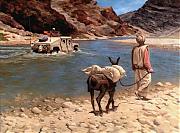

 Reply With Quote
Reply With Quote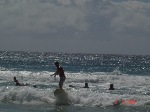


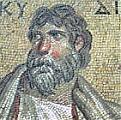


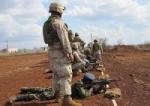
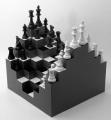


Bookmarks